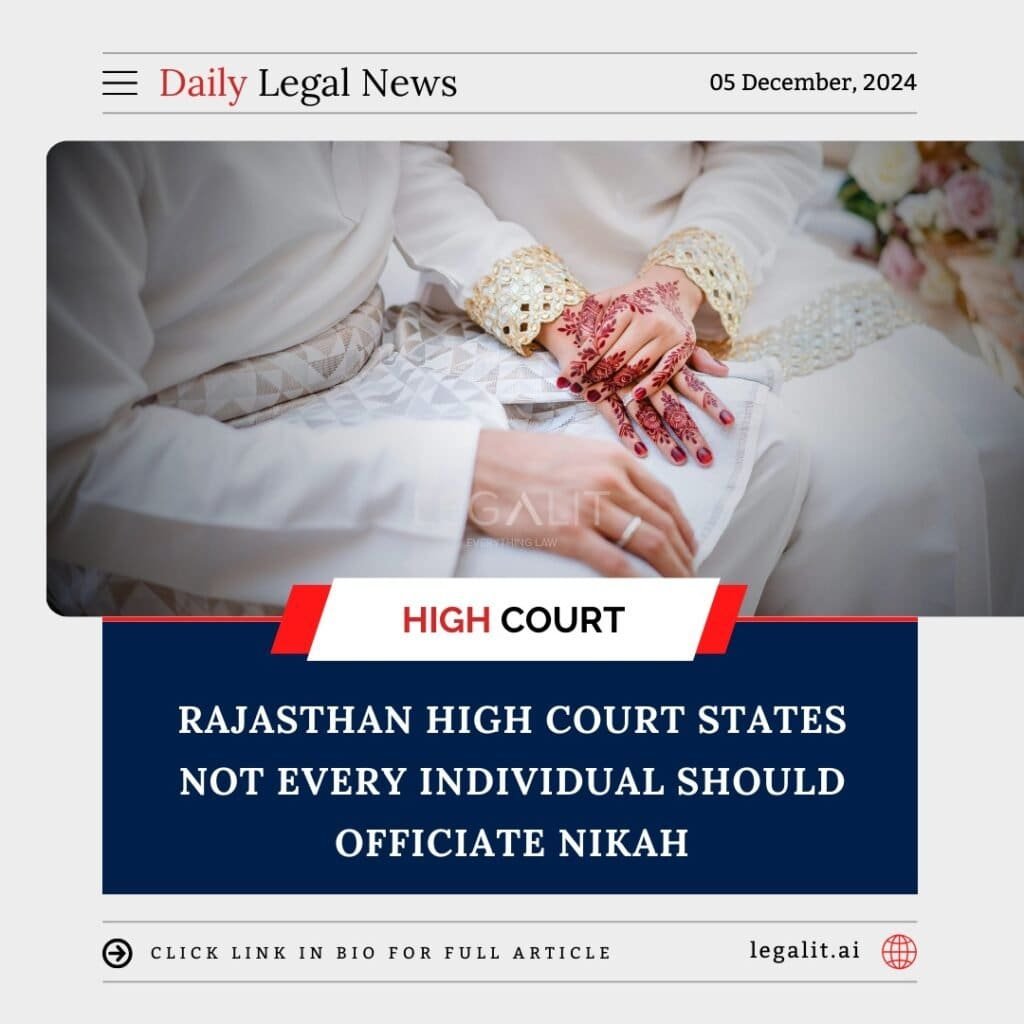
The Rajasthan High Court has emphasized that not every person, regardless of their background, should be allowed to officiate a Nikah (Islamic marriage ceremony). The court’s remarks came during a case involving a dispute over the validity of a marriage where the officiating individual was not legally qualified to perform the ceremony. The bench clarified that only authorized individuals, such as a certified Qazi, should be allowed to conduct Nikah to ensure the legitimacy of the marriage.
Background:
The issue arose when a Nikah was officiated by someone not formally recognized as a Qazi, leading to questions about the marriage’s validity. The petitioners argued that the officiant’s lack of proper qualifications violated established legal and religious norms.
Court’s Rationale:
The court noted that while personal and religious freedoms are to be respected, marriage ceremonies must adhere to legal and religious standards to ensure their authenticity. The bench highlighted the importance of having qualified and authorized individuals preside over such significant life events to avoid legal complications.
Existing Measures:
This ruling reinforces the necessity of ensuring that only those with recognized authority can perform religious ceremonies, such as Nikah. The court’s decision could encourage more strict adherence to such qualifications in religious functions moving forward.
Conclusion:
The Rajasthan High Court’s statement reflects the growing concern over the importance of legal and religious legitimacy in officiating ceremonies. It underscores the need for clear regulations regarding who can officiate weddings, particularly in religious contexts, to prevent disputes and ensure the authenticity of such unions.